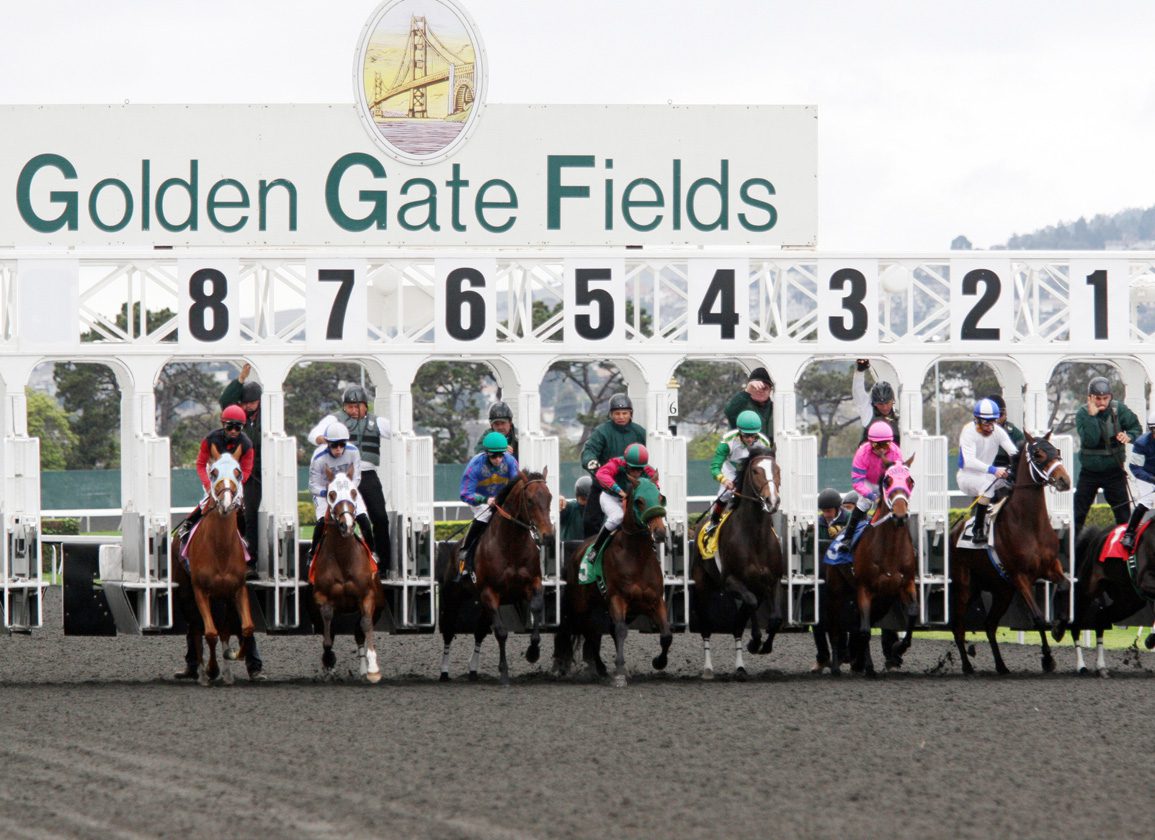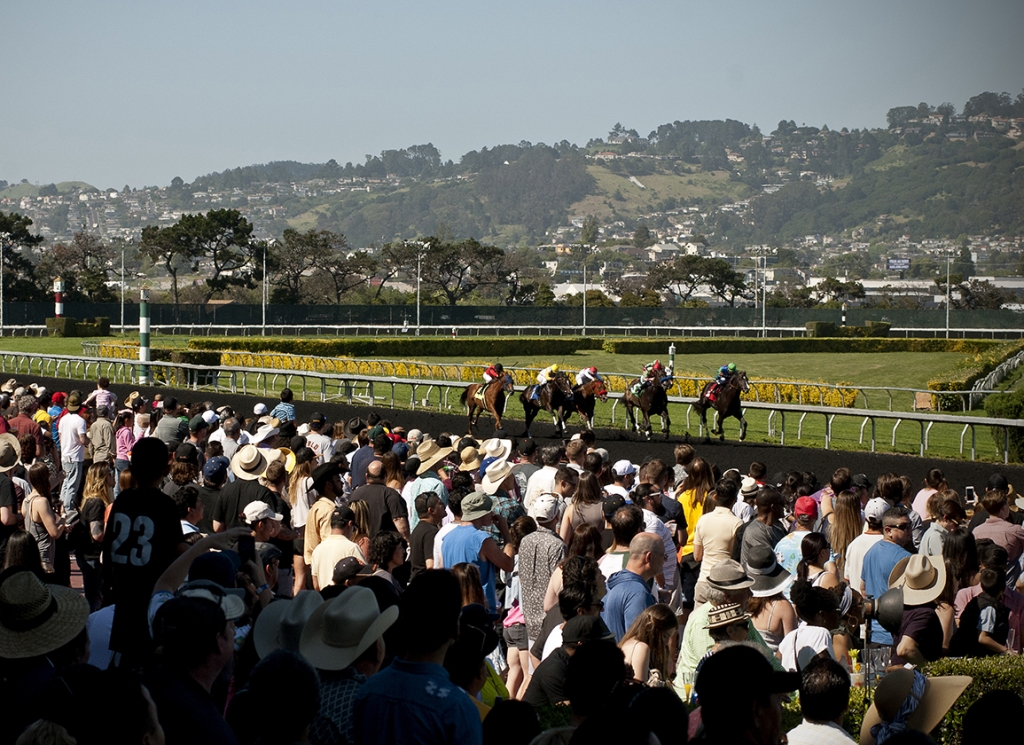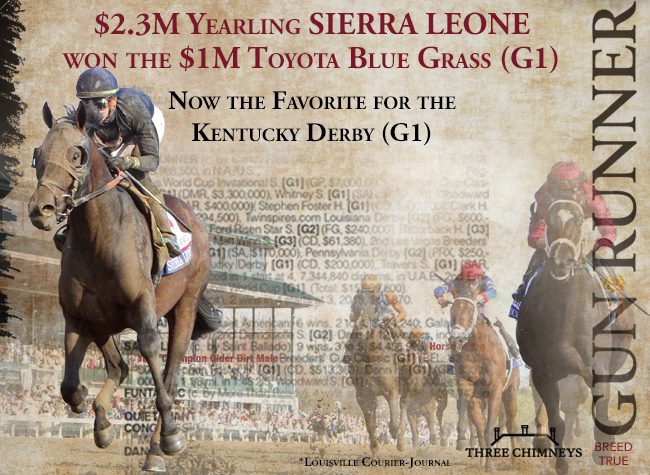By Dan Ross
A proposed Berkeley City Council ordinance has been introduced that, if passed into law, would put Golden Gate Fields' future in serious jeopardy.
The proposed ordinance makes it illegal to keep a horse stabled for more than 10 hours a day and requires that every horse has access to a minimum of one-half acre pasture turnout.
While reaffirming state and federal laws surrounding animal abuse and cruelty, the proposed ordinance also makes it a crime to conduct training and racing under a “reasonable expectation” that it could substantially injure or harm the animal.
“Such reasonable belief would be based upon substantial evidence, which may include, without limitation, the animal's physical condition, indicia of pain or suffering, musculoskeletal limitations, age or other relevant factors,” the ordinance states.
“Obviously we're concerned,” said Craig Fravel, executive vice chairman at 1/ST Racing and Gaming, a company under The Stronach Group (TSG) umbrella, which owns Golden Gate Fields.
Fravel said that he was alerted to the ordinance on Friday. As such, TSG has not yet had a chance to conduct a legal analysis of the ordinance, or to plot a clear response, he said.
“I'm not going to over-react at this point, and just try to be constructive in our approach,” said Fravel. “There will be some time to engage and I think educate people on our safety record and our protocols and efforts that we go through.”
The proposed ordinance, introduced by Berkeley City councilmember Kate Harrison, has been referred to the Council Health and Life Enrichment Committee for hearings. The ordinance would need a recommendation from the committee before being taken up by the Berkeley City Council.
Harrison declined an interview, saying that she was on vacation. Harrison added, however, that she would discuss the proposed ordinance when committee discussions begin.
The nine-page proposed ordinance is specifically focused on horseracing and excludes other facilities within city limits where animals are housed, including animal rescue and adoption agencies.
It makes, however, several glaring misrepresentations and distortions of the Thoroughbred racing industry. This includes an erroneous suggestion that Thoroughbred racehorses, on average, live to only three to five years of age.
“Many fatalities in horseracing are euthanizations after horses suffer catastrophic injuries, cutting their lives unnaturally short,” the ordinance states. “When CBS Bay Area reported on the most recent horse death at GGF in May of this year it cited the fact that 'live into their 30s, but the average age of is [only] three to five years old.'”
The ordinance also states that “horse deaths continue to rise at the horse racing tracks within City limits.”
According to the Jockey Club Equine Injury Database, race-day equine fatalities are declining nationwide. Last year saw the lowest statistical equine fatality rate since 2009, when record keeping began–1.25 fatalities per 1000 starts.
When it comes to Golden Gate Fields, the track's equine fatality rate has been consistently below the national average since 2017. Last year, the rate was 0.56 fatalities per 1000 starts–a number less than half the national average.
“I'd like to push back pretty solidly against some of the suppositions,” said Scott Chaney, executive director of the California Horse Racing Board (CHRB), who added that the CHRB is “aware and certainly concerned” about the ordinance.
“Fatalities are not on the rise at Golden Gate Fields. The opposite is true,” said Chaney. “And while it is true that racehorses generally race from three to five, that is not their average life expectancy.”
The ordinance argues that the City of Berkeley, a charter city, has the legal authority to “establish regulations” and the jurisdiction to “protect and promote the public health, safety and welfare by establishing safeguards for animals” as long as those regulations don't conflict with state and federal law.
“It is in the public interest to adopt an ordinance prohibiting inhumane or abusive treatment of animals held, owned, used, exhibited or otherwise kept for sport, entertainment or profit within the City limits,” the ordinance states.
Chaney is less sure of the city's ability to establish such a law. “I believe that there would be some major legal hurdles in attempting to pass such a thing,” said Chaney.
He added, however, that the CHRB hasn't yet conducted a thorough legal analysis of the proposed ordinance to identify what those legal obstacles might be.
One possible hurdle would presumably concern how Golden Gate Fields straddles two adjacent cities, Berkeley and Albany.
The ordinance outlines a set of tough penalties, beginning with minimum fines of $5,000 per animal, per violation, per day, or imprisonment for periods between 30 days and one year.
In explanation of the proposed requirement to provide racehorses access to open pastures for a good portion of the day, the ordinance argues that how colic, laminitis, and pleuropneumonia are issues worsened by excessive confinement.
“Confining a 1200-pound animal to a 12×12 stall is akin to confining an elephant to a box car or a killer whale to a swimming pool. Equine veterinarian, Dr. Kraig Kulikowski, compared this to locking a child in a 4×4 closet for 23 hours a day, abuse punishable by law,” the ordinance states.
In recent years, Golden Gate Fields has found itself the target of animal rights activists.
In March of 2021, protestors disrupted racing by running onto the track before lying in a circle with interlocking pipes.
The protestors belonged to animal rights organization, Direct Action Everywhere, which seeks to see Golden Gate Fields shut down.
Not a subscriber? Click here to sign up for the daily PDF or alerts.







